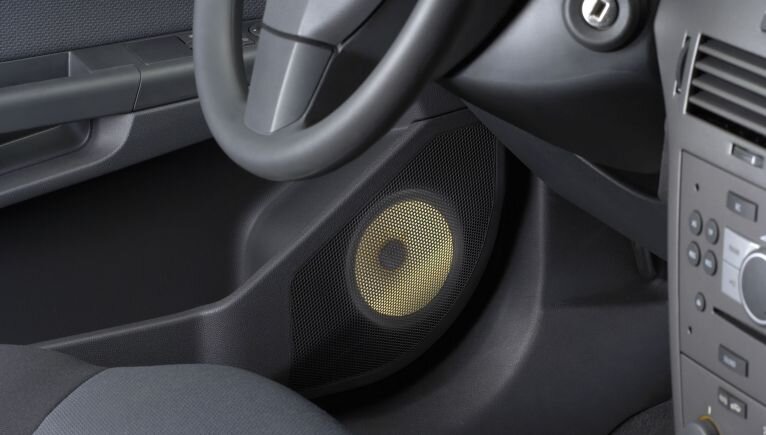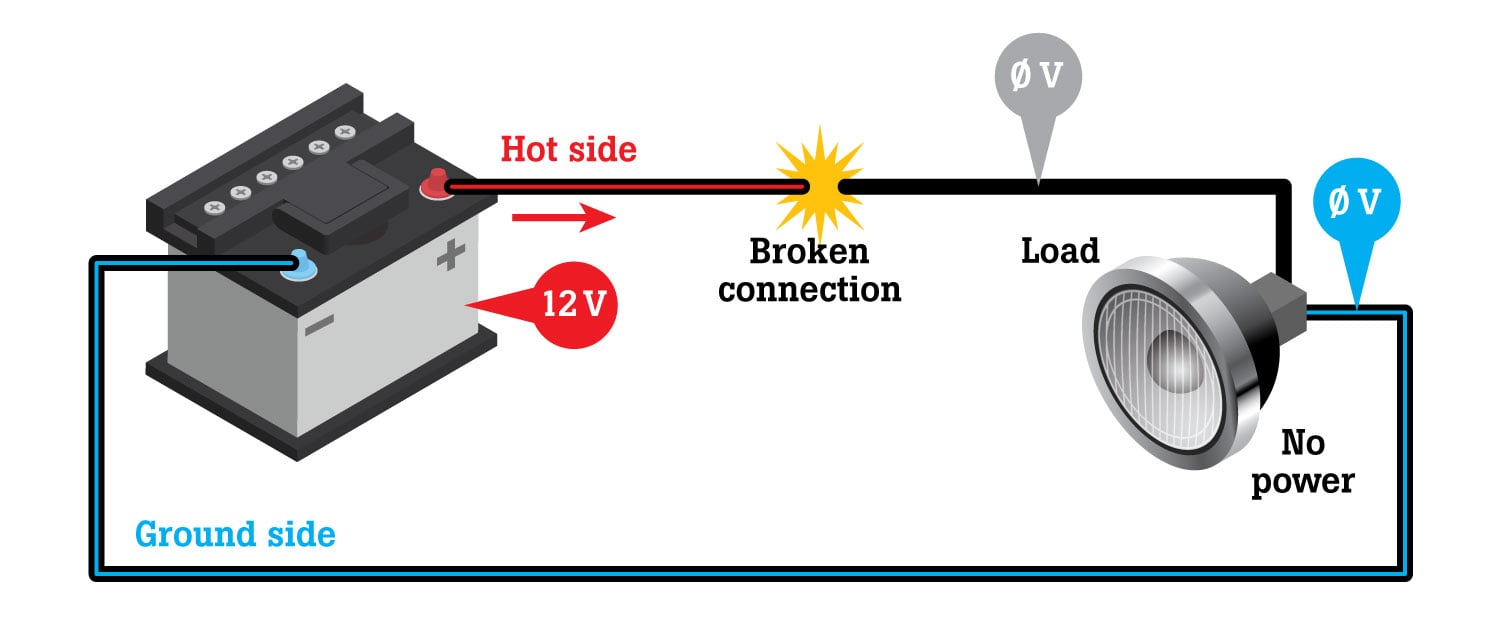Having some loud noise popping up from your car speakers can be a nuisance. The noise might hinder you from enjoying your favorite music during the long drive to the countryside. When a screeching noise comes from your car’s stereo, it’s an indication that all is not well and that your car speakers might be damaged.
This article will discuss how you get rid of static noise in car speakers. But first, let’s look at the types of noise speakers make and what causes the noise.
Types of Noise in a Car
The three types of noise that cars make include:
- Whining
- Buzzing
- Hissing.
The whining noise is not common, and you may hear it in cars that are parked. However, the hissing and buzzing noises are static, and they can vary in intensity.
Cause of Noise in Car Speakers
Many things can cause noise in the car since it’s complex. It may therefore be tricky for you to establish the root of any noise, and that’s why it’s wise to engage a car expert to guide you. Nevertheless, some speaker noises are common and here is a discussion of each of them. See our article on how to measure car speakers.
Grounding
Grounding is among the most common noises that a car makes. This noise is caused by a lack of fitting the grounding well and as a result, the speaker produces a static sound even when it’s on. Also, if the grounding wire you are using is not thick enough, a static sound will be produced.
Radio in Reception of Power
Car radios are different, and some will switch off when they are not in constant access to power and can be turned on any time. On the other hand, other radios will switch off once you remove the ignition key. It is, therefore, possible to hear some static noise even without igniting the car. However, this depends on the type of car radio.
/doubledinradio-59274b373df78cbe7e3cf838.jpg)
Speaker Wires
Several wires connect your car radio to the speaker. If any or all of these wires are faulty or low in quality, they will make funny noises. This is more so because car radios are constantly connected to batteries.
Electrical Interferences
This is another major cause of static noise in-car speakers. It is the only external cause of noise since internal issues cause all the other causes. Mainly this noise is caused by devices like phones, power cables or an MP3 player.
Once you plug in any of these gadgets, they cause transmission or distortion of electrical signals. These signals collide with the sound produced by your car speakers, which is why you will hear noise when driving. You, therefore, need to know that your audio system can be affected by any device that emits electrical signals.
Damaged Speakers
Faulty speakers are the number one cause of static noise in cars. A damaged cone can create extra noise by producing lots of vibrations. It could be that your speaker is loose, worn out, or maybe something that gets into contact with it when it’s making a sound.
It is good to note that any speaker component plays a critical role in its sound production. Therefore, if one of them is faulty, you will get poor audio quality. It is for this reason that you should keenly ensure that the car speakers are in good shape.

Too Much Power
As much as power is critical in sound production, too much is destructive and will create some interference. Primarily, power in audio systems is controlled by speakers or amplifiers, which is more so the electrical power. Therefore, it is wise to check on your electricity supply whenever you hear some distortions in the sound of your system.
If you are recording, you can avoid distortion by reducing the volume of the car speakers. Listening to your audio content with a low volume is better than having some distortions in it. See our article on how to properly install car amplifiers.
Aged Amplifier
Once a piece of equipment gets old, it’s no longer in its original shape and might not be reliable. Old amplifiers can cause static noise in-car speakers. This may be because of overused capacitors and transistors. Also, the sockets in which the transistors are held could wear out and become loose. The other reason behind this could be playing your music in high bass, thus producing vibrations.
How to Get Rid of Static Noise in Car Speakers
The first thing to do whenever you want to fix any problem is to find its root. Now that we have discussed some of the causes of noise in-car speakers, you have a clear picture, and it’s time we discuss how to fix them. Nevertheless, you need to note that each problem has its way of fixing. Some are easy to solve, while others are complex and time-consuming. For instance, if it’s the case of loose speaker wires, you can quickly fix it.
Identify The Specific Source of Static Noise
As we have mentioned above, this is the first thing to do. Many things cause static noise in-car speakers. It could be interference of the radio frequency or electromagnetic interference caused by an unprotected cable. To achieve this, you should turn off the head unit so that you track that irritating sound.
If the noise goes off by turning off the unit or changing its intensity in line with the engine, the alternator could be problematic. As a result, there will be a whining sound that is solved by installing a filter. Additionally, the problem could be in the audio sources if the noise doesn’t go away even after turning it off.
Fixing The Car Radio Static
If a static noise is heard when you are listening to the car radio and no other external devices, the issue could be with the tuner antennae or external interference. The best way to establish the noise source is by removing the head unit and locating the antennae wire. However, it would help if you were careful to fix only what you are conversant with. Here are some steps of fixing problems associated with car radio static noise.
1. Establish whether the issue is external.
The perfect way to do this is to take note of the static changes as you drive. If it’s not consistent and will only appear in some places, the issue could be from outside and antenna-related. The best way to solve this is to boost your car antennae and get rid of poor reception. However, there might be nothing you can do if obstructions or hills cause the noise in the area where you are.
2. Check the ground connection of your car radio.
This comes after you have confirmed an external issue does not cause the static noise. You check the ground connection by removing the head unit and pulling back the carpet to remove the dash panel and other elements. However, this is a sweaty task. After you have removed them, trace the ground wire to where it is connected to the frame or chassis.
If you notice that the connection is rusted, corroded, or lose, you should clean, tighten or move it to another place. Ensure that the head unit is in separate locations with other components to prevent a ground loop.
3. Check if the antennae wire is removing the static
If the wire does not remove the static, re-routing the cable would be the best move so that it doesn’t cross or touch any electric gadgets or wires because that might cause interference. In case this trick doesn’t work, replacing the antenna should be the next option.
4. Check if there is still some sound by Unplugging the radio antenna.
If the above remedies don’t eliminate the noise, unplugging the antenna from the head unit should be next. Unplug it, turn it on and listen for any static noise. If you are close to a strong signal, you can maybe tune in to a radio station and listen to establish if the noise will still be there. If this trick helps eliminate the noise, then the problem could be in the antennae cable.
Check Your Patch Cables
Some cars have their audio systems connected to the patch cables. These cables might be the cause of static noise in your vehicle. To establish if the wires are the noise source, detaching them from the amplifier would be a good thing.
Once you have detached the cables, take a spare pitch cable and insert it into either your amplifier’s right or left-side input jacks. After that, switch on the audio system and engine.
If you do this and the noise disappears, disconnect the cables from the receiver and reconnect them to your car’s amplifier. If the noise doesn’t go away, then the patch cables are the problem. You might therefore have to buy new ones or re-route them.
It is wise to invest in quality patch cables because they have the proper conductivity for getting rid of noise in your car. The RCA cables are the best because they last longer and are reliable.

Pull the Receiver from the Dashboard While Playing a CD
There is another type of noise known as radiated static noise. It means that radiation caused the noise in your system. Such noise is eliminated by pulling the receiver from the dashboard while the CD is in play mode. If the noise goes away after doing this, then radiation is causing the noise in your car’s audio system.
Check Your Car Battery and Alternator
Sometimes car static noise can be caused by its electrical system. This is more so if you have fixed the wires and there is no change. Filling your car battery with fluid would be the best idea in such a scenario. If this doesn’t work, get a mechanic to check on the battery and alternator. Interestingly static noise may be caused because your car has not been in use for a long time.
Lack of ignition can cause the problem, and the best way to confirm this is by listening for any screeching sound whose speed keeps on changing with acceleration. If the noise persists after tuning up with the distributor cap, then your car’s ignition system could be the issue.

Disconnect The Speaker Wires From the Amplifier and Turn Off The Sound System Of Your Car
Speaker wires are mostly the cause of static noise in vehicles. To check if everything is okay with the wires, you should turn off the audio system and disconnect the amplifier from the speaker wires.
Once you do that, restart your car, and if the noise is still there, it could have been radiated into speaker wires. The solution to this issue is shielding them with foil wrapping, after which you should make sure that the wires are well fitted and don’t have breaks.
Install A Noise Filter
Speakers will always produce a clicking sound if the engine is noisy. You can confirm this if only the noise is produced when the engine is on. Also, your car’s alternator could be a problem if the noise pitch changes with the engine’s RPM.
The speed of the engine could be one reason behind the varying pitch. As much as most static noise in cars is caused by poor grounding, installing a noise filter would be best. There are many types of noise filters, and therefore you should be keen to buy the one that will match your vehicle.
The other option is separating the chassis from your car’s amplifier by using rubber grommets or feet. You can use different patch cables, especially the RCA cables, if the trick doesn’t work.

Choosing a Good Car Noise Filter
This is a challenging task for most car owners, especially those using it for the first time. Noise isolators are available in two types. The first ones are easy to install and set up in your vehicle. It is also tiny and has the size of a battery. This type of car noise isolator is plugged between the audio device from which you are streaming your music and your vehicle’s stereo, and that’s it.
The other type of noise filter is a bit complicated when it comes to installation. Buying this car filter also depends on the type of your car, and therefore you must check on that. Setting them up is also not easy, and you might require a mechanic.
Add Sound Deadening Material
Adding a sound deadening material can calm things down. However, some materials can make your car become heavy and sometimes they are expensive. These materials come in handy in reducing background noise. By a more considerable percentage, this will allow you to hear the music clearly or converse generally in your car with other passengers.
Additionally, sound-deadening materials allow you to get quality sound from your car speakers. This works well if you have installed a premium audio system and want it to dominate your car equally. Sound deadening materials will allow you to get a loud sound system without any buzzing or rattling. This is more so if you install them in the car trunk or door panels.

Frequently Asked Questions
1. What happens if my car noise filter doesn’t filter the noise?
There are only two reasons why a car noise filter would fail to function. Either you did not install it properly, or the noise is coming from an external source.
2. Which is the leading cause of static noise in cars?
Poor wiring is the leading cause of noise in a vehicle. This is more so if the cables between the speakers and the audio source are not connected or they are worn out.
3. Does static noise always indicate that car speakers are damaged?
No. There are other reasons why your car could be producing noise.
4. Which are the best car speakers?
A good car speaker should enhance mid, highs, and bass. It should have a high peak power of not less than 300 watts.
Conclusion
A noisy car can make your journey frustrating, especially if the noise is coming from the car speakers. As discussed in this article, there are several causes of such noise. It could be an old amplifier, damaged speakers, or excess power.
To fix any issue in your car audio system, you must first establish the cause of the problem. Once you do that, follow each step that we have discussed, and you will accurately solve the problem. In case you are not sure of how to go about it, you can engage a mechanic. You don’t have to live with noise issues in your car when you can do something about it.
We hope his guide helps you enjoy each moment in your car.
You may also be interested in:
